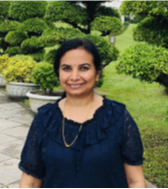Need Help?
22 December 2022
Interview with Prof. Dr. Reeta Rani Singhania—Editorial Board Member of Bioengineering
|
|
Name: Prof. Dr. Reeta Rani Singhania |
We had the pleasure of speaking with Prof. Dr. Reeta Rani Singhania, an Editorial Board Member of Bioengineering (ISSN: 2306-5354), to discuss the recent research trends in the field and her personal career developments. We hope you enjoy the interview.
1. What are your research areas?
My main research expertise is in the areas of microbial and enzyme technology, with the main focus on the development of bioprocesses and bioproducts. I have worked extensively on the production of cellulase and beta-glucosidase for biofuel applications. I have also worked on a major integrated project, with the final aim of producing biohydrogen by utilizing agro-wastes. My current work at NKUST in Kaohsiung, Taiwan, is on the “Bioprocess development for biomass valorization”. In this direction, we have been working on oligosaccharides for prebiotic application and bioethanol production, using locally available abundant biomass. Hydrothermal pretreatment and controlled enzymatic hydrolysis have been explored for this purpose. We have also explored bacterial bioprocesses for nanocellulose production, which has immense applications in various fields and we have explored its potential for heavy metal removal. Overall, in one word, I can summarize my area of research as biorefinery.
2. What are the latest developments in your research field?
Biorefinery is moving quickly, and we have succeeded in developing enzymes for biomass saccharification at high-solid loading with higher efficiencies, which has provided us with several patents and the technology is in the matured stage. Now, I am more focused on understanding biomass deconstruction via hydrothermal pretreatment. Research in this field has resulted in our understanding of how biomass can be deconstructed into each component and the multiple ways of producing cascades of products out of it. Various biomass feedstocks, including lignocellulosic biomass, macroalgae, and microalgae, have been employed to produce various products, including platform chemicals, along with oligosaccharides and bioethanol.
3. Can you briefly share your career development story? For example, what cases have influenced you the most?
I started my career in 2002 as a lecturer at a university (GGV in Bilaspur, India) and shortly switched to research at the CSIR Institute in India, National Institute for Interdisciplinary Science and Technology, Trivandrum, as a project assistant in the group of Professor Ashok Pandey, the leading biotechnologist in India now, where I studied for my doctoral degree with Dr. Rajeev Sukumaran and thereafter, my real research journey started, as I was granted an opportunity to showcase my independent research capabilities at various institutes and in the industry. I moved to France to work at Institute Pascal at Clermont Ferrand and thereafter moved back to India with a prestigious fellowship (“DBT-Energy Bioscience Overseas Fellowship”) to work at the Center for Advanced Bioenergy Research, DBT Center (Indian Oil Corporation Ltd, R & D, Faridabad, India). I think that in the initial stages of my career, I was influenced by biomass conversion using enzymes, which we were producing ourselves in the laboratory. For me, it was amazing to observe how leaves and twigs were converted into ethanol. I realized that in this way, the carbon footprint can be reduced; moreover, lignocellulosic biomass is the most ubiquitous and abundant raw material available that can benefit mankind; hence, technology can be used in the absence or depletion of petro-refinery products. I can see the potential for translational research and laboratory work to be scaled up to an industrial level to see the light of commercialization.
I dedicated my energy to improving my knowledge to a higher standard, so that I could be a well-equipped professional researcher and a teacher.
4. Do you have any valuable suggestions that you would like to share with young students and early career researchers?
I think the best advice I received from my mentors that I can share with young students is to keep learning and to never stop learning because there is always something new to learn to improve your skills and understanding of concepts. There are no alternatives to sincerity and dedication and these are essential in order to succeed in your field. One must also have patience.
5. What do you think of the development of Open Access in publishing?
The concept of Open Access in publishing has opened a new door for students, researchers, and scientists to have easy access to research in their respective areas of interest and expertise to explore innovative ways to understand and perform their research work. I think it is an interesting way to publish research work that is relevant both now and in the future.
We are thankful for Prof. Dr. Singhania's time and support for Bioengineering.


